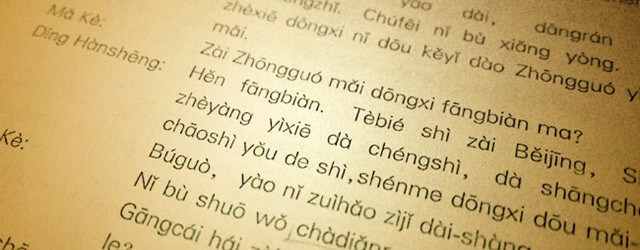The Phonetic Errors in ‘Finals’ of Thai students Learning Chinese

Today, we focus on the challenges that Thai students face in learning Chinese and suggest some solutions.
In the Chinese vowel system, except for the zero initials, the other finals only appear after initials. But in the Thai language, vowels can occur in front of, behind, above, and under initials. In addition, the Thai language also includes short and long sounds. So, Thai speakers’ problems in learning Chinese speech occur mainly in two areas. The first area is made up of the consonants “Zh, Sh, R, Z, C.” These sounds do not exist in the 42 consonants of the Thai language, so the sound is very strange for Thai students; to grasp this kind of sound is very difficult. The second problem is comprised of the vowels “ü[y], ei[ei], and ie[iε].” These three finals also do not exist among Thai vowels, so Thai speakers often make mistakes in learning these vowels.
1. Problems with finals
1)1)When Thai students learn Chinese, they often misread “ua and uo.” Sometimes they read ua as uo, and sometimes they read uo as ua. Examples include reading huá qiáo (overseas Chinese) as huó qiáo; reading tài guó (Thailand) as tài guā, and reading zhōng guó (China) as zhōng guā, and so on.2)They feel confused when they meet “ie and ia.” For example, Thai speakers often read jiā (home) as jiē; xià (below) as xiè; jiē (street) as jiā; bié (other) as bia; xièxie (thank you) as xiàxia; and jiā yù hù xiǎo (well - known family) as jiē yù hù xiǎo.
3)The Chinese vowel “ü” is difficult for Thai students to pronounce, and the vowels and syllables related to "Ü" are more difficult to pronounce. Actually, the pronunciation ü and “I” is roughly the same. The difference is that when pronouncing ü, you need to round the lip, but when you pronounce I you need not.
4)Retroflex “er” is another difficulty for Thai speakers. The main error is that they do not roll the tongue and instead pronounce the “er” sound into the central vowel or vowel[e]; or the opening of the mouth is too large and makes “er” sound like retroflexion [ar].
2. Learning strategy for finals
1) Learning finals as a single word. For example, when pronouncing "ao," first you can try to pronounce “a,” and then you can change the mouth shape to get “u.” “A” sounds high and long, and “u” sounds light and short. When pronouncing “ǜe,” you can try to pronounce ǜ first and then stretch the lips outward, open your mouth as half the width of the tongue as “a,” and lower your tongue. When you pronounce “ua and uo” the mouth should be tight and lips should be summarized, and pay attention to the back of the rhyme at the same time.2). Learning finals from phrases and sentences. Use words, phrases or sentences to speak or answer questions as much as possible. For instance, when you meet two easily confused finals you can do some word collocation exercises. So, to avoid errors caused by improper training find a teacher to help correct your pronunciation.such as xià diē (plummet), jié jià rì (holidays).
Practice makes perfect. Students should practice their listening and speak freely. Welcome to book a free Chinese trial class . Continue to learn Chinese online with us!
Comments
Post a Comment